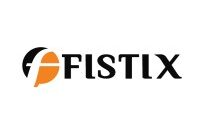
Search engines drive product discovery in e-commerce, but traditional keyword-based search often fails to understand context, synonyms, and user intent. While working on a product search system for an e-commerce services company, we faced challenges where users couldn’t find relevant products due to limitations in exact-match keyword searches. To solve this, we built a Hybrid Search solution that combines Lexical Search (Elasticsearch) and Semantic Search (FAISS) with AI-powered ranking (LLMs), delivering faster, more accurate, and context-aware search results.
This article explains how we implemented the first cut of Hybrid Search to enhance e-commerce product discovery.
🔹 Why Hybrid Search?
Traditional keyword-based search (BM25 in Elasticsearch) is great for exact text matches but struggles with:
❌ Synonyms & Variations → “Cheap sneakers” vs. “Affordable running shoes”
❌ Context & Intent → Searching for “wireless headphones” might miss “Bluetooth earbuds”
❌ Ranking Relevance → The best results don’t always appear first
🔹 Hybrid Search fixes this by merging:
✅ Lexical Search (Elasticsearch BM25) → Matches exact words
✅ Semantic Search (FAISS Vectors) → Matches meaning & context
✅ AI Re-Ranking (Cross-Encoders/LLMs) → Ensures best results appear first
Let’s explore how we build this system. 🚀
🔹 1️⃣ Lexical Search with Elasticsearch (Keyword-Based Matching)
Elasticsearch uses BM25 scoring to rank search results based on keyword relevance.
query_body = {
"query": {
"multi_match": {
"query": query,
"fields": ["title", "description"]
}
}
}
es_response = es_client.search(index=index_name, body=query_body, size=top_k)
lexical_results = [{**hit["_source"], "score": hit["_score"]} for hit in es_response["hits"]["hits"]]
✔️ Fast retrieval
✔️ Works well for structured data
❌ Fails when query wording changes
🔹 2️⃣ Semantic Search with FAISS (Vector-Based Matching)
FAISS (Facebook AI Similarity Search) enables fast Approximate Nearest Neighbor (ANN) search by storing product embeddings as high-dimensional vectors.
How We Store Products as Vectors
• Convert product titles & descriptions into vector embeddings using multi-qa-mpnet-base-dot-v1 (optimized for Q&A & search).
• Store embeddings in FAISS for quick similarity matching.
query_vector = embedding_model.encode([query], normalize_embeddings=True)
D, I = index.search(np.array(query_vector), k=top_k)
semantic_results = [{"title": products[i]["title"], "description": products[i]["description"], "score": float(D[0][j])} for j, i in enumerate(I[0])]
✔️ Captures meaning & intent
✔️ Finds relevant products even when words differ
❌ Slower than BM25 for large datasets
🔹 3️⃣ Merging Lexical & Semantic Search (Hybrid Ranking)
After retrieving results from both Elasticsearch (BM25) and FAISS (Semantic Search), we merge them using weighted scoring.
alpha = 0.5 if len(query.split()) > 2 else 0.7 # Adjust weight dynamically
results = {}
for doc in semantic_results:
results[doc["title"]] = {"title": doc["title"], "description": doc["description"], "score": (1 - alpha) * doc["score"]}
for doc in lexical_results:
if doc["title"] in results:
results[doc["title"]]["score"] += alpha * doc["score"] # Boost if found in both
else:
results[doc["title"]] = {"title": doc["title"], "description": doc["description"], "score": alpha * doc["score"]}
✔️ Balances exact match & contextual relevance
✔️ Boosts results appearing in both BM25 & FAISS searches
❌ Doesn’t guarantee the best ranking order yet (solved in next step)
🔹 4️⃣ AI-Powered Re-Ranking with Cross-Encoders (LLMs)
Even after merging Elasticsearch & FAISS, the results may still be misranked. To fix this, we re-rank results using a pre-trained LLM (cross-encoder/ms-marco-MiniLM-L-12-v2).
How AI Re-Ranking Works
• Each result is compared to the query using the LLM.
• The model predicts a relevance score for each query-product pair.
• We normalize scores using Min-Max Scaling to get a consistent ranking.
query_doc_pairs = [(query, doc["title"] + " " + doc["description"]) for doc in initial_results]
reranking_scores = reranker.predict(query_doc_pairs)
# Min-Max normalization
min_score = min(reranking_scores)
max_score = max(reranking_scores)
normalized_scores = [(score - min_score) / (max_score - min_score + 1e-6) * 10 for score in reranking_scores]
# Assign normalized scores back to results
for i, doc in enumerate(initial_results):
doc["score"] = float(normalized_scores[i])
✔️ Ensures most relevant products rank highest
✔️ Filters out low-relevance results
❌ Adds extra compute cost
🚀 Test Drive: Running the Hybrid Search
query = "Bluetooth headphones"
results = hybrid_search_with_reranking(query, top_k=5, score_threshold=1.5)
for res in results:
print(f"Title: {res['title']}, Score: {res['score']}")
✅ Search Results
Title: Wireless Headphones, Score: 9.999999444802226 Title: Bluetooth Speaker, Score: 6.483402361453368
🔍 What These Results Mean
1️⃣ “Wireless Headphones” ranks at the top with a perfect score (~10) because it matches both keywords (“headphones”) and semantic meaning (“Bluetooth”).
2️⃣ “Bluetooth Speaker” appears second because it is related to the query (“Bluetooth”), but it is not a direct match for “headphones”, hence the lower score (~6.48).
✅ Key Takeaways from the Test Drive
✔️ Keyword-based and semantic matches are combined for smarter search
✔️ AI Re-Ranking ensures the best product appears first
✔️ Search is highly relevant, filtering out irrelevant products
🚀 Final Benefits of AI-Powered Hybrid Search
✅ Combines BM25 (Elasticsearch) + FAISS (Vectors) for better retrieval
✅ Dynamic weighted scoring balances exact and contextual matches
✅ AI-powered re-ranking ensures best results appear first
✅ Scales efficiently with FAISS Inverted Indexing
This AI-powered search system provides a smarter, more efficient way to handle product discovery in e-commerce. 🚀🔥
The complete working Hybrid Search implementation can be found on GitHub:🔗 GitHub Repository: fistix/ai
Would you like to integrate this into your SaaS product or optimize further? Let’s discuss!
